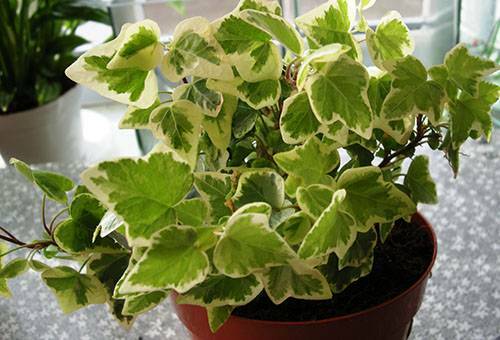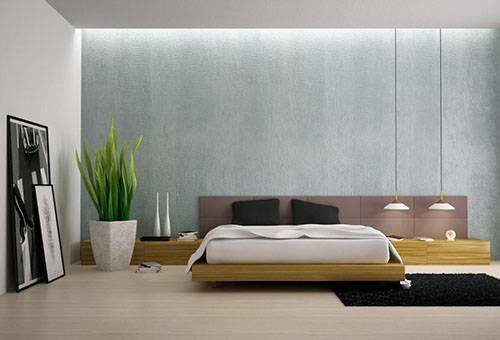Contents:
- Dangerous Neighbors
- Signs and Superstitions
- Indoor Floriculture by Feng Shui
- Let's take a look at the bedroom
Indoor plants create an individual atmosphere in every home, inherent only in this home. They make the home cozy and warm, caring for home plants is a pleasure. No one, probably, will argue that these are living organisms that affect the health and psyche of a person. Knowing which indoor plants can not be kept at home, you can avoid the danger to the health and mood of family members.

Blooming oleander
Dangerous neighbors
With regard to energy, the advice to get rid of stunted and sick plants in time is psychologically justified. Few will find it easier on the soul at the sight of the dying plant. If, for some reason, it was not possible to keep it healthy and strong, the best way is to give the plant to someone who will wisely correct it.
However, the biggest threat poses not fallen ill indoor flowers - in terms of safety, you can not keep houses of plants whose leaves and fruits contain poisonous substances. Even if the florists take all precautions, these pet "pets" are dangerous for young children and pets who do not have a developed sense of danger. Here are some of them.
- Dieffenbachia is a beautiful plant with decorative leaves, on the site of a cut or fracture of stalks and leaves, it secrete milky juice, which can cause irritation on the skin or a burn of the retina of the eyes. When a large amount of juice enters the mouth, a severe burn of the mucous membranes appears.
Similar properties are possessed by: spurge, poinsettia, acalifa, cyneum, philodendron, calla, aglaonema. Their juice irritates the skin and mucous membranes of the mouth and eyes, when it gets into the intestines it causes nausea, diarrhea and vomiting. Especially poisonous in this respect are hyacinth, cleavage, and hippeastrum.
- Oleander is a decorative flowering plant, which, during flowering, emits an aroma that can lead to fainting. Juice of stems and leaves of oleander can cause blindness due to burns of the mucous membrane of the eye.
Other representatives of this family of Kutrovs have a similar effect: Pahipodium, Diplazheniya, Barvinok, Adenium. Why can not they be kept at home? These houseplants contain poison, weakening the cardiac activity of humans and animals.
- Nightshade, brunfelsia, bralia, cleavage - their attractive fruits and berries are so poisonous that they get into the body, cause drowsiness and dilated pupils, abdominal pain and vomiting.
- Primrose, cyclamen - contraindicated to those who suffer from allergies, these people immediately begin to have allergic dermatitis, inflammation of the skin.
Very intensely toxic compounds are released during the care of plants( irrigation, spraying, reproduction).
If you still decide to grow these houseplants in your apartment, remember the first aid measures.
- The skin should be washed with soap and water at the poisonous juice.
- After ingestion of poisonous juice, take absorbents( activated carbon), induce vomiting.
- Inhalation of mucosal eyes with running water about 20 minutes, then consult an eye doctor.
- In case of poisoning of children or appearance of signs of disturbance of nervous, cardiac activity in adults, it is urgent to see a doctor.
Knowing which house plants can not be kept at home, you can provide for many unpleasant situations related to the health of family members.

Signs and superstitions
To believe or not to people's signs about what flowers can not be grown at home is a private matter for everyone. A simple law works here: if you believe in these superstitions - they will come true, if you are indifferent to the signs - the troubles predicted by them will bypass you.
Here are a few superstitions associated with indoor plants.
- Do not keep liana or ampel house plants at home - men in the family will not be late. Dangerous in this respect are such "muzhegons" as: scindapsus, Tradescantia, Zebrina, Ivy, rafidophora, rao, Roicisus, Campelia.
- Palm trees, donated by someone, not grown with their own hands, bring a great grief to the house.
- Cacti attract drunkenness to the family. On their account there is another sign - a girl living in a house where cacti grows, is doomed to remain an old maid.
- Monsters, ferns, philodendrons - energy vampires, they deprive the inhabitants of the forces, sucking out life from them. Why did the beautiful monster get into such disgrace? Maybe because of the name, or maybe because of its air roots, like a tentacle.
- Geranium is a plant of lonely people. This superstition, apparently, arose because of the love for this flower of grandmothers, pensioners, that is, the reason was mixed with the investigation.
Despite these superstitions, there are a huge number of examples where families that grow cacti and creepers and lianas and geraniums are very happy.

Indoor Floriculture in Feng Shui
Popular Oriental doctrine of Feng Shui can offer some tips on what flowers can not be put in an apartment or another human dwelling.
- You can not keep indoor pets at home, causing antipathy from the owners, otherwise they will radiate negative energy around them.
- The same statement applies to sick and withering plants.
- Cacti or similar succulents with spines and hard leaves can not be placed in rest areas, in the bedroom.
- Any flower composition using bonsai symbolizes the restriction of development, therefore it is undesirable to use Feng Shui to have such translators of negative information in the human dwelling.
- In addition to cacti with heavy energy, yucca, sansevera, or "pike tail", ehmeya, neoregelia, orchid are possessed. Being with them a lot of time in one space, you can get not only a headache, but also problems in the family and at work.

Look at the bedroom
In no room in the house or apartment so a person needs in positive energy and in clean air, as in the bedroom. On what kind of indoor plants he is going to keep and grow there, depends not only a full rest from day-to-day cares, but also health and intimate relationships.
It is undesirable to put in a bedroom plants with a large mass of leaves: a monster, a ficus, a fern. In the dark, they will intensively absorb oxygen, which the inhabitants of the house need so much. Inappropriate in the bedroom and flowers with strong flavors( lilies, gardenias, orchids, hydrangeas), as well as those that emit toxic fumes: oleander, alocasia and many others listed above. Even geranium can cause a headache if you keep it in the bedroom on the windowsill of the south side.
If family members suffer from asthma or allergies, it is better to abandon plants in the bedroom altogether. Constantly moist soil in flower pots, spores of some plants, molds, possibly found in a moist environment, do not influence the health of such patients in the best way.
As for the recommendations of Feng Shui, according to his canons in the bedroom it is undesirable to keep:
- tall plants with spreading leaves;
- hard and prickly cacti and succulents;
- drying and diseased specimens.
What kind of flowers teaching feng shui advises to keep in the bedroom? They are soft and tender specimens with thin leaves, citrus, miniature varieties of figs, violets, scarlet.

To the colors in the children's bedroom, the requirements are the same, only reinforced with security measures. There you can not put:
- poisonous varieties of indoor flowers;
- specimens with a strong odor;
- cacti, milkweed and succulents;
- lianas and ampel plants;
- flowers, strongly emitting carbon dioxide, with large leaves;
- allergens.
Buying or growing indoor flowers, you need to pay attention to their properties: safety, no allergic danger in the form of fungi, mold, spores. It is strictly forbidden to keep poisonous specimens in a house where there are children. Especially carefully selected green jewelry for placement in the bedroom, in the children's room. If people's signs and superstitions seem worthy of attention, then you should choose flowers, focusing on them. Regardless of where flowers are placed to decorate rooms - in the kitchen, in the living room or in the bedroom - there is always a large selection of plants that do not present a danger to health and energy balance.
We recommend reading the article on how to care for
zamiokulkas


